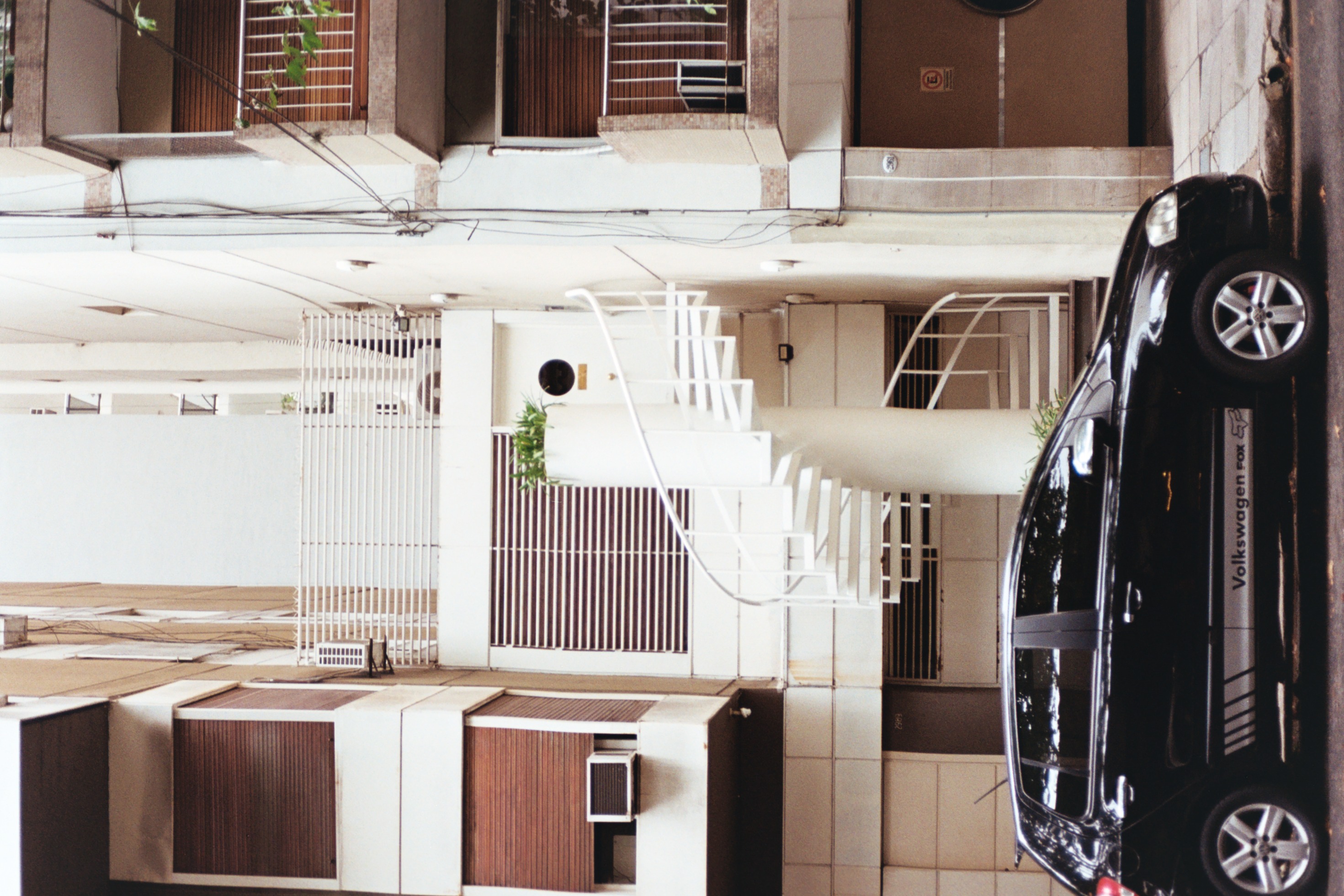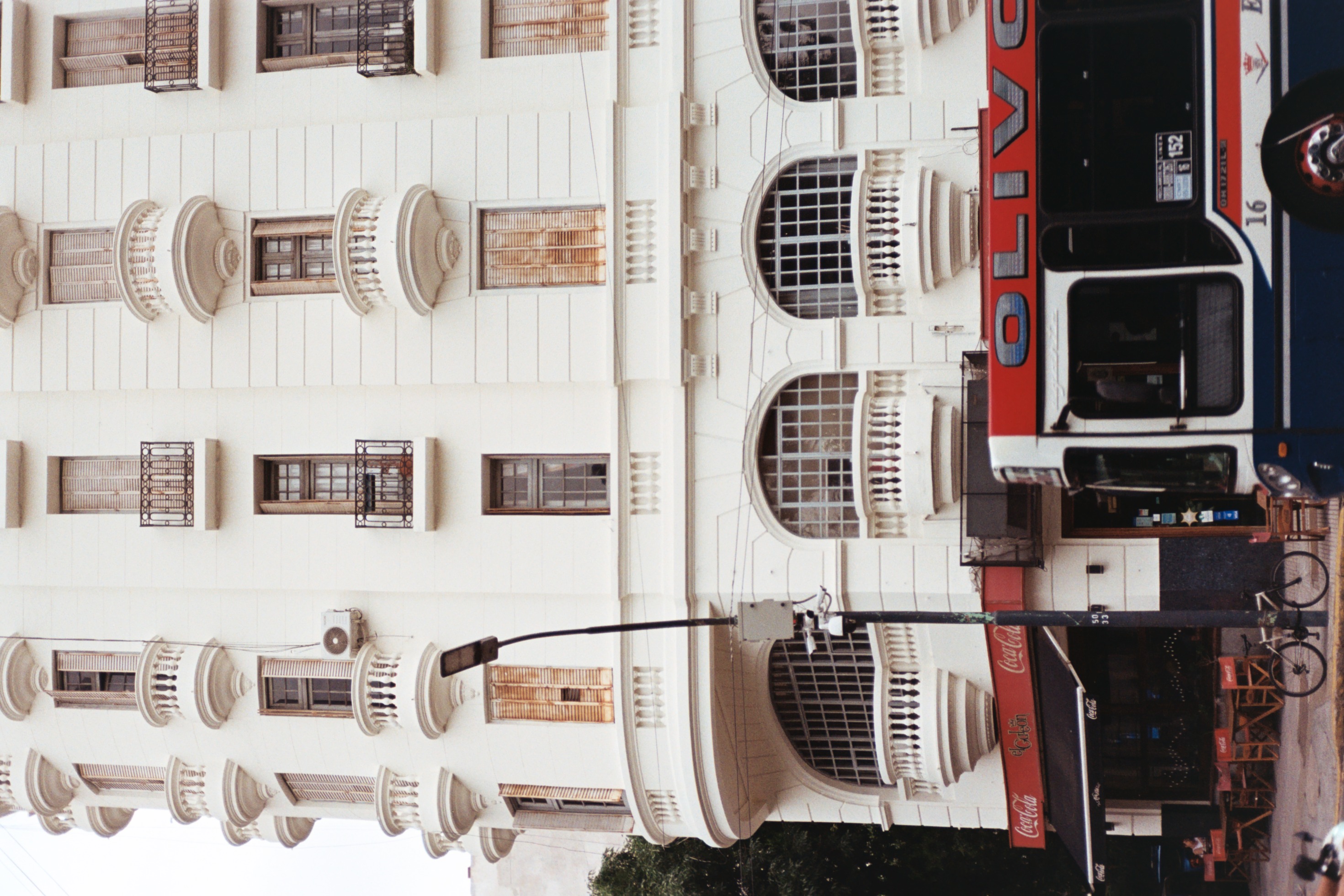Perhaps Blindness Is Seeing Everything At Once
On Buenos Aires & Borges
I.
I lived alone on Calle Cuba, in a one-bedroom apartment with 3 shirts, a guitar, and a view of cracked cement courtyard harboring a solitary pine tree. Everyday my contact with other humans was limited to the exchange I’d have in the check-out line of Disco (the local grocery store), where I’d clumsily hand-over my ID & card in return for my steaks and broccoli. Towards the end of my stay I began additionally frequenting a cafe on my block, where every morning I’d chat with the barista standing at her coffee-counter as she surveyed the foot traffic. She eventually became a half-sort of friend––someone who’d wave at me as I’d walk by in the afternoons, who’d tell me about the musicians she liked (Spinetta) and her favorite songs by them, if never her name. Living this way, mostly solitary, but a little less so each day, I became proud of even this small social scene I’d begun to build-up. Like the pink rings around the bottom of a bathtub, I was proving tough to scrub-out: I was remaining in people’s lives after I’d left the room, as evidenced by their knowing my name when I came back.
At the mid-point of my time in Argentina, I made contact with a man who offered a Borges Tour of Buenos Aires, hopeful that maybe he too with time could become a friend. We settled on a fee & a time to meet. As he wasn’t an official tour guide, only a grad student, we weren’t granted any particular access to the landmarks in the writer’s life however. And so, standing on the street, we looked up at the balcony where Borges would sometimes take sun as an octogenarian, or at the top floor windows of the apartment where he would dine with Casares most nights of the week. The tour was too long and, conducted during South American summer, required multiple bottles of water to survive. And false moves were mixed in throughout. We’d started in the Recoleta cemetery for example, though Borges was not buried there. I forget where he was buried. The tour never touched on this.
David, so... have you read The Aleph? No? Only Ficciones!? Ah, no, shit! You rascal. And the poems of Borges? No!? You haven’t read the poems!! Ah, what a shame!
As became apparent by first the baristas’ blushing, and then their hiding their faces behind their hands, I didn’t know very much about the author at all. But then, to be fair, how could I. At the time I was 26 & a foreigner, who’s exposure to Borges was limited to the shrivelled foreign language sections in the majority of American bookstores. The period I’d read him most seriously was in college, where as a math student I’d apprenticed my time (and to some extent my sanity) to the belief that equations, proofs, matrices, etc. were at the bedrock of our existence if one cared to drill down far enough. Not literature. Not Keates in the orchard, or Kafka on the shore. Nothing you couldn’t put through graph paper or prove was true.
But then sometimes grace is performed and a soul is saved. Mine was. For at some point in my 2nd year, a copy of The Library of Babel was pressed into my hands. And there, finally, was hiding the face of God, the mysteries, and the beginning of infinity.
II.
That was then. Where are we now: shivering & alone on a desert road with the sun going down behind purple mountains, I’m hard walking the final curve on my last turn home. I’ve reached the one year anniversary mark on my trip to Argentina, and as I do these little evening walks to establish some bloodflow in my pale legs, I’m listening to the lectures Borges gave at Harvard in the fall of 1967 & spring of 1968.
And they’re beautiful. The writer’s words, carefully chosen, vanish as soon as they’re spoken into the recording’s tape-hiss, softly haunting as they hang in a gap 60 years wide. And the longer I listen to this man’s strange & charming accent, and his quotations from Old Norse & Old English poetry (recited always from memory), the more I realize what I already know. That my guide was right. I hardly know Borges at all.
At the time of these lectures, for example, he was completely blind. Did this blindness bother him? In an interview on Firing Line in 1977, he explains how at first it did, yes, and then how with time he eventually incorporated his blindness into his craft. For he found that the longer & longer he sat without vision, the deeper & deeper he could look back into his memory.
In his story The Maker (1960), Borges describes Homer’s blindness as perhaps a stand-in for his own, telling of how from the depths of his memory the great poet first glimpsed black ships on the horizon, winds laden with the hot ash of burning cities, and the beautiful waste of bronzed hero’s bleeding out over Aegean sands. In this same way, I wonder, as Buenos Aires began to exist less before Borges’s eyes and more from the vantage point of his recollections, if its countless alcoves, gardens, and thoroughfares––its white stucco-ed towers and galleries, eventually dissolved into the labyrinths, libraries, and walled palaces he so loved.
Chronologically, this doesn’t correlate with his writing. He dreamt these landscapes as a younger man, and his later work, if anything grounds more deeply into reality. And yet I like to think that in darkness, stumbling around his study, he was finally able to step into a world that up until then he had only ever access to through the page.


III.
I stepped into that world, the visible one Borges eventually lost, last year as I’ve mentioned––driven by a set of circumstances that once again seem near afield. At that time, I was completely strung-out. New York is no lark, and seeking hejira in the night, I ran to somewhere warm and with local color. A mother in a place. A city on a great bay. And yet, as I now look back on my memories, photos, and notes, and try to see in their two-dimensionality what I know they represent in three, I find my remaining materials in no way sum to the tremendous warmth I have for the Borges’s city.
In this way it is a city one falls in love with for the same reason one falls in love with Borges, and perhaps for the same reasons Borges fell in love with it too, although at the end of his life he did leave and for good. (He was buried in Geneva I finally learned, in 1986).
But perhaps to leave, as Borges did, is the wise thing. For staring into the streets and churches and squares and galleries of infinity there at the bottom of the world, can with time, only lead one down the path of blindness.
D.C. 1/14/24 – Go Home︎︎︎